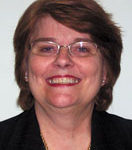By Celine Klosterman
To raise awareness of issues faced in cross-cultural ministry, the Davenport Diocese will require a new course in the Ministry Formation Program (MFP) beginning this fall.
“Cultural Diversity in Ministry” will be offered in both the English and Spanish-language basic program and in the parish life coordinator/pastoral associate track of MFP, which trains lay Catholics for ministry. The class will explore generational, gender and ethnic diversity, highlighting especially the intersection of Hispanic and Anglo cultures in the Church.
The diocese includes several parishes with large Latino populations, as well as Vietnamese, Filipino and Burmese Catholics.

MFP Coordinator IlaMae Hanisch was inspired to create the course thanks to several factors, including the rising numbers of some ethnic minorities in Iowa. From 2000 to 2011, the state’s Hispanic population grew from 2.8 percent to 5.2 percent, according to U.S. Census data. During the same time period, the percentage of Iowans who reported themselves as Asian increased from 1.3 percent to 1.9 percent.
“Our Hispanic communities and Vietnamese have continually increased in our worship services,” said Shirley Van Dee, a member of the MFP Advisory Board. “We felt there was a need for more training in how we interact, welcome and receive them and bring their gifts into our communities.”
In 2011, the U.S. bishops issued revised standards requiring lay ministers to have “a spirituality sensitive to diverse cultural expressions” and an ability to “integrate into ministerial practice knowledge of intercultural communication and linguistic/cultural skills.”
Hanisch saw a hunger for cross-cultural understanding in Hispanic Catholics who asked her about the meaning of U.S. holidays such as Independence Day and Thanksgiving. The new MFP course aims to help both immigrants and U.S. Catholics better comprehend each other’s customs, values, popular devotions and styles of communication.
Sister Jane McCarthy, OSF, who reviewed materials for the class, knows the importance of such knowledge. Director of Latino Ministry at Prince of Peace Parish in Clinton, she has served communities of various ethnicities and studied in Mexico.
To understand another culture, you must first understand your own, she said. For example, Americans may prioritize tasks over relationships, whereas Hispanic communities tend to value people over accomplishments and deadlines. “When we run into someone, we’ll say, ‘Hello. Did you get this done? What time is that meeting?’ They say, ‘Hello. How are you? How are the kids?’”
Hispanics’ approach means their schedules are more flexible, Sr. McCarthy observed. “I learned the hard way that if I wanted a meeting to start at 7 p.m., I needed to call it at 6:30 p.m. That way both cultures were honored.”
Catechists ministering to Spanish-speaking communities may need to keep a few other things in mind, she said. Even those Catholics who speak some English may not know the English terms for Church elements such as “holy water,” since those terms aren’t often used in everyday conversation. Children usually pick up English faster than their parents, so Hispanic youths may mix with Anglos at parish events more easily than adults do.
But don’t let children serve as the primary translator for their parents, Sr. McCarthy advised. “They don’t have an adult level of language and understanding, so they may not even translate correctly.”
Also, “Kids in Mexico generally went to religious education just for the sacraments.” So immigrant parents may not initially see the need for their children to attend classes in the United States every year.
Before lay ministers can address such issues, there’s one task Sr. McCarthy hopes the MFP course will help Catholics embrace: “We have to be welcoming,” she said.
Registration information for MFP should be available in late July at www.davenportdiocese.org, Hanisch said. For more information, contact her
at hanisch@davenportdiocese.org or (641) 791-3435.
Ministry Formation Program to change
on-site class format
Beginning this fall, students who choose the on-site format of the two-year basic track of MFP will meet at the diocese’s chancery in Davenport one Saturday per month, 12 times a year. Previously, the on-site group met twice a month from October to April.
MFP Coordinator IlaMae Hanisch said the change will give students more time between courses to read material and finish homework.
Students who don’t select the on-site format learn from DVDs and printed course materials at home. These students meet monthly in a small group in their area. Hanisch said she hopes to have groups in Iowa City, Washington, West Point, Davenport and Newton. Other sites may be added if there is a demand for a group in particular area.







